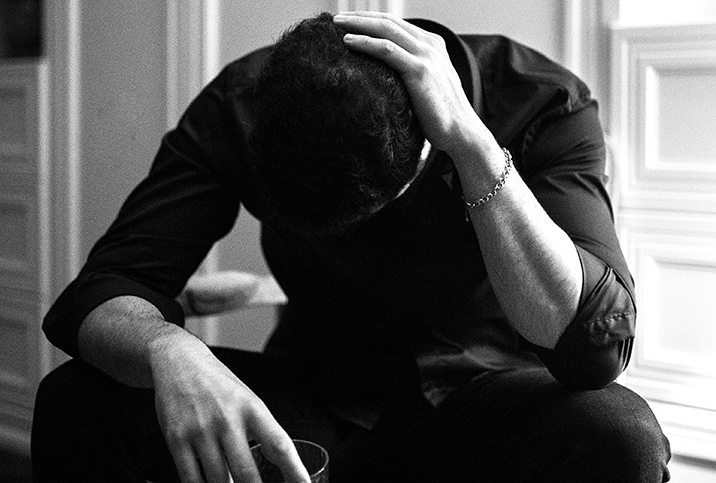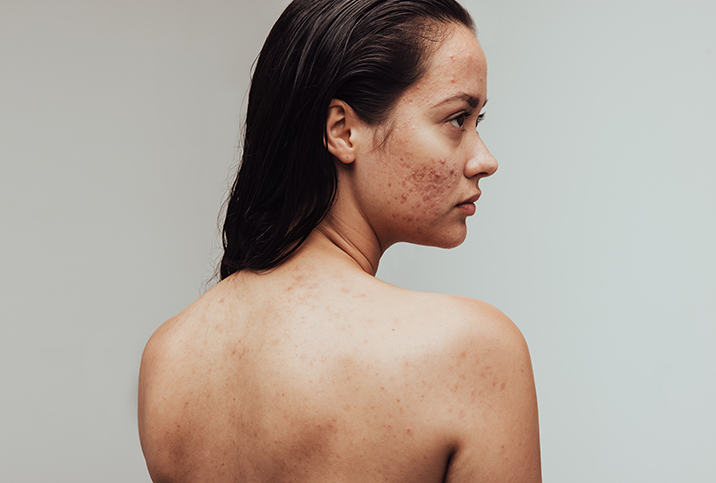How Do You Date Someone with PTSD or CPTSD?

Dating should be effortlessly fun. But for people with mental health conditions, dating can become far harder to navigate as it morphs into a reflection of the harsh reality of your life with a diagnosis that has radically changed how your brain functions.
Post-traumatic stress disorder (PTSD) or complex post-traumatic stress disorder (CPTSD) are anxiety disorders that develop as a psychological response to a physical injury or severe mental or emotional distress.
Approximately 6 percent of Americans develop PTSD at some point in their lives. In any given year, 12 million adults in the United States experience post-traumatic stress disorder, according to the National Center for PTSD.
"Surviving C-PTSD or PTSD does not mean you should not date," said Nakpangi Thomas, L.P.C., C.T., a professor in Detroit who specializes in trauma and mood disorders. C-PTSD refers to complex post-traumatic stress disorder. "The company of others can be rewarding. Do not be afraid to put yourself on the dating market. Remember, you are not your trauma and it is not your fault."
What is PTSD?
"I have significant moments from my memory that are just gone, particularly around when events would have happened," said teacher Moira Clancy, 36, a victim of domestic violence who developed PTSD. "[I have] physiological reactions to things like slamming doors and loud noises. I didn't cope if people were argumentative with each other; I'd just have to leave. I'd overthink everything, which was part of the anxiety element."
Labeled "shellshock" following the first and second world wars, post-traumatic stress disorder first appeared as an operational diagnosis in 1980.
Complex post-traumatic stress disorder, a lesser-known extension of the condition, was first described in 1992 by American psychiatrist Judith Lewis Herman.
Post-traumatic stress disorder is typically caused by a singular traumatic event, such as a car accident or near-death experience, and C-PTSD is commonly triggered by long-lasting or repeated trauma.
While PTSD is recognized in the Diagnostic and Statistical Manual of Mental Disorders, Fifth Edition (DSM-5), C-PTSD has yet to be included.
"Acute trauma results from a single incident," Thomas explained. "Chronic trauma is repeated and prolonged. Complex trauma is exposure to varied and multiple traumatic events."
Post-traumatic stress disorder and C-PTSD have emotional, somatic and psychological symptoms in common, including flashbacks, nightmares, sleep disturbance, depression, anger and dissociative disorder.
Some experts identify additional symptoms for C-PTSD that may have far-reaching developmental effects for people who experience long-lasting trauma at a young age. The symptoms include difficulties with controlling emotions and maintaining relationships, detachment from the trauma and a negative self-view.
What is the impact of PTSD or CPTSD on dating?
"As far as my dating confidence, I think it's more around the area of struggling to trust people," said Clancy, who lives in Brisbane, Australia, and is taking an extended break from dating. "The person that I married, I knew him for five years and I had no idea that he had drug issues. It was so well hidden. It's really hard for me to trust."
Living with post-traumatic stress disorder or C-PTSD can be an isolating experience, and the idea of dating while managing the condition feels overwhelming at times.
"Dating and intimacy may be a challenge or even a trigger for someone experiencing C-PTSD or PTSD," Thomas said. "It may be hard to hold a conversation; they could be seen as boring or uninterested. Dating in public settings, such as restaurants, parks and festivals, can cause panic attacks or confusion. For some, they become more dependent on dating and the company of others."
Everyone is vulnerable to being an "oversharer," and it's important to avoid this tendency in any dating scenario but especially if you have PTSD or CPTSD.
A healthy partnership involves supporting each other through hard times. However, it is unwise to jump ahead to this dynamic in the early stages of dating. It puts you in a vulnerable position and places pressure on prospective dates.
Take your time and find an appropriate time to explain what feels comfortable for both of you.
"Be honest, be open," said Frances Kelleher, a dating coach from Killarney, County Kerry, Ireland. "I would only be telling people that you know are committed to the relationship and you. Tell them in your own time. Don't feel under time pressure to say anything you don't feel comfortable saying."
How can PTSD or CPTSD affect sex?
"Awareness is self-compassion and it's helpful for everyone around you," said Charlotte Fox Weber, a psychotherapist and writer based in London. "We're often afraid to really see and address our inner turmoil, but when we do, it's just such a relief. When you open your eyes to what's activating old wounds and reopening emotional scars, you can get ahead of all sorts of chaos."
"The physiological effect of PTSD can make it difficult to have sex or enjoy it," Thomas said. "It is common to feel detached from your body to feel safe or to connect with your partner. Only engage in sex when you are ready. Sex is relaxing and produces pleasure hormones. Yet engaging with some may cause you to be retraumatized."
Complex post-traumatic stress disorder triggered by repeated instances of sexual violence can make it easy to detach during sex and use physical pleasure as a mental escape. To counteract this urge, slowly build up intimacy with new dates.
Thomas advised making space to express your feelings before, during and after sex. Establishing boundaries while dating and knowing your personal limits before any contact can help prevent retraumatization.
How can you prioritize your health when you have PTSD or CPTSD?
"We don't have to rush everything, and there's a fullness in living outside of being abused that I experience that I can't trade for anything," Clancy said. "I won't be with someone on a whim just so I'm with someone."
All healthy relationships need communication and taking responsibility for your emotions, which is even more crucial when someone has PTSD.
Learn to be open about your experiences in a way that does not compromise your well-being or safety. And take your time when it comes to when you're ready to date. There is no rush to find the one; your well-being comes first—always.
PTSD and dating don't have to always go hand-in-hand, you can take some time for yourself first.
"Show up for yourself and be your own ally rather than expecting a relationship to fix you," Weber said. "You don't need fixing, but you can work on yourself and be at ease with yourself no matter how unpleasant your experiences may have been."


















